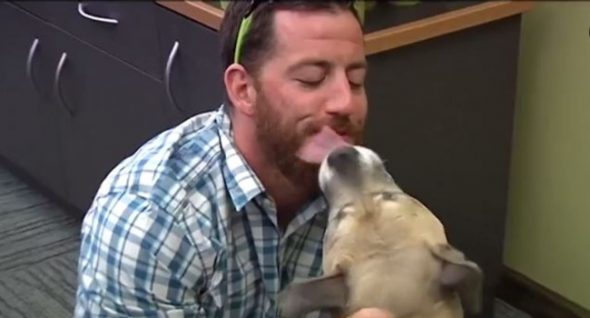
—————————————————————————————————————————————————————————————————-
Marine Corps veteran Richard Sirianni adopted a pitbull named Buca roughly seven years ago. But in 2015, Sirianni found himself jobless and struggling to cope with addiction and mental health issues.
“A lot of the drinking, the drugs, the PTSD- everything collapsed in on me at once,” Sirianni told WETM-18.
He knew he needed some help, but fear of what could happen to Buca and his other dog while he sought treatment was keeping him from the aid he desperately needed. That’s where the Kramer Foundation stepped in.
As we started doing a program for fostering for deployed soldiers that had no where (for their dogs),” Juli Lathrup of the Kramer Foundation said. “I also found out that veterans were not seeking treatment they needed because they had no place to put their dogs as well.”
Sirianni underwent months of treatment in Rochester, NY.
But during that time, he was able to get well without worry, knowing his dogs were in a safe place. Bonus: they were receiving training to improve their behavior to help Sirianni once his treatment ended.
Lathrup even brought the dogs up to Rochester to see Sirianni during his treatment.
“I was able to put in eight months of therapy for not only the addictions but also for the PTSD,” Siranni said. “And simultaneously I knew my dogs were in wonderful hands being with Juli.”
Without the help, Sirianni says he may not have ever gone through the potentially life-saving process.
“Without somebody having my dogs, I can say I probably wouldn’t have gone,” Sirianni said. “And I may or not be alive today and if I was, it would be an ugly sight.”

—————————————————————————————————————————————————————————————————-
Sirianni and Lathrup, aware that in some cases a dog can be a person’s only family, want veterans and active-duty service members to know similar help is out there. Something as simple as knowing there is care available could be critical.
“For the veterans, it’s one less thing they have to worry about,” Lathrup said. “So the success rate after treatment is greater when they don’t have all of those stresses hitting them as soon as they come out.”
For more information on the Kramer Foundation, click here.
